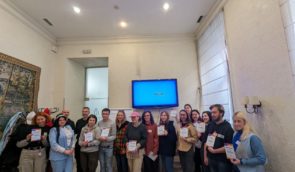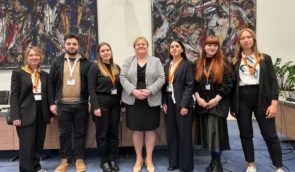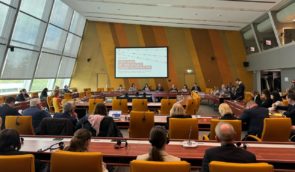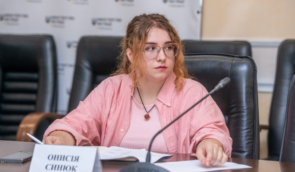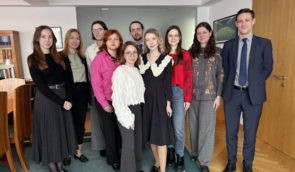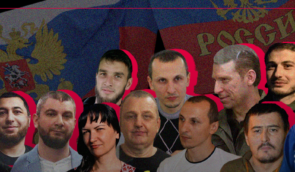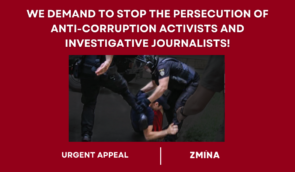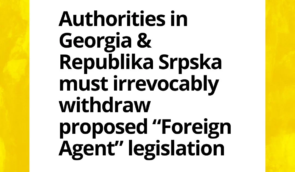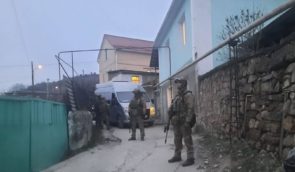How the state ensures observance of the rights of the conflict-affected population: human rights defenders’ report
On February 17, human rights activists presented an alternative report in Kyiv on Ukraine’s compliance with the International Covenant on Economic, Social and Cultural Rights that studies observance of the conflict-affected people’s rights in Ukraine.

The UN Committee is starting its 67th session in Geneva, during which the Ukrainian government’s seventh report on the Covenant’s observance will be examined. The reporting procedure involved preparation of questions for Ukraine by the Committee in 2018, followed by the government’s replies given in 2019. Simultaneously, an alternative report was presented to the Committee by a Coalition of NGOs that deal with conflict-related issues and help victims of the conflict.
“We focused on victims of the conflict, emphasizing that this group requires special attention from both the state and the international community. We also did our best to provide specific recommendations that should help improve people’s lives and finally resolve systemic problems,” says Alyona Lunyova, advocacy manager at the ZMINA Human Rights Center.
According to Anastasiya Odintsova, legal analyst of the charitable fund Right to Protection, the issues of employment and housing for IDPs have remained unresolved for almost six years due to the lack of holistic vision and proper funding for strategic areas.
 Anastasiya Odintsova
Anastasiya Odintsova“Thanks to the efforts of NGOs, a court decision delivered in 2018 abolished the provisions of the Cabinet of Ministers Resolution no. 365 that forced IDPs to undergo inspections at their place of residence when they applied for social benefits and pensions. However, the practice of such inspections is still in place. There are also widespread issues of non-compliance with courts that order the authorities to resume payments to IDPs whose pensions had been suspended earlier after an inspection. The government’s debt in these cases has already reached UAH 600 million,” says Anastasiya Odintsova.
Another important issue concerns integration of IDPs into local communities. Despite the adoption of the Electoral Code of Ukraine in late 2019, which provides for the possibility of voting in local elections for IDPs, the latter are not considered members of the territorial communities they live in and are thus unable to fully enjoy their political rights, and it’s the political engagement of IDPs that can help not just with their successful integration, but also with the inclusion of IDPs’ needs during the development and implementation of local programs. Such is the opinion of Maria Krasnenko, lawyer of the Civil Holding GROUP OF INFLUENCE.
Much of the report’s focus is on residents of Ukraine’s temporarily occupied territories.
“One of the principles enshrined in the Covenant is progressive implementation of socio-economic rights. This means that Ukraine has an obligation to take all necessary steps to allow residents of the occupied territories to exercise their rights without discrimination. This includes access to documents, pensions, employment, education, social and administrative services,” says Hanna Dudinska, lawyer of the charitable fund Stabilization Support Services.
Equally urgent are issues related to the protection of children, particularly the ineffectual status of a child affected by war and armed conflicts, as well as the absence of a strategic level document on these issues in the country.
Olga Skrypnyk, head of the board of the Crimean Human Rights Group, says: “We would like to draw particular attention to the consequences of Russia’s militarization of children in Crimea – the destruction of their Ukrainian identity, the inability to choose one’s citizenship, the large-scale propaganda of the service in the Russian armed forces. Crimean children are able to get education in Ukrainian language only in the GCA, and these children are also facing a number of other unresolved issues. Thus, they can obtain certificates of basic and complete secondary education only if they intend to study in Ukrainian universities. Otherwise it’s impossible, which prevents them from getting a job or vocational education in the future.”
 Olga Skrypnyk
Olga SkrypnykThe Coalition of human rights defenders addresses the UN Committee in the alternative report, asking it to include the following recommendations in its final observations:
- start working on a new IDP Integration Strategy 2021-2025 and an action plan on its implementation;
- develop national policy on the exercise of housing rights by IDPs and an action plan on its implementation as part of the national policy on IDP integration;
- separate applying for pensions and social benefits that are not related to internal displacement from the need to obtain IDP certificates;
- introduce a mechanism for paying pensions to residents of the occupied territories, including to low mobility people and people with disabilities;
- develop a concept of education for residents of the temporarily occupied territories that would take into account their situation, etc.
For reference: the authors of the alternative report for the UN Committee “Ensuring the observance of socio-economic rights of the conflict-affected population in Ukraine” are experts of NGOs Donbas SOS, Crimea SOS, Civil Holding GROUP OF INFLUENCE, ZMINA Human Rights Center and Crimean Human Rights Group as well as charitable funds Right to Protection, Vostok SOS and Stabilization Support Services.

